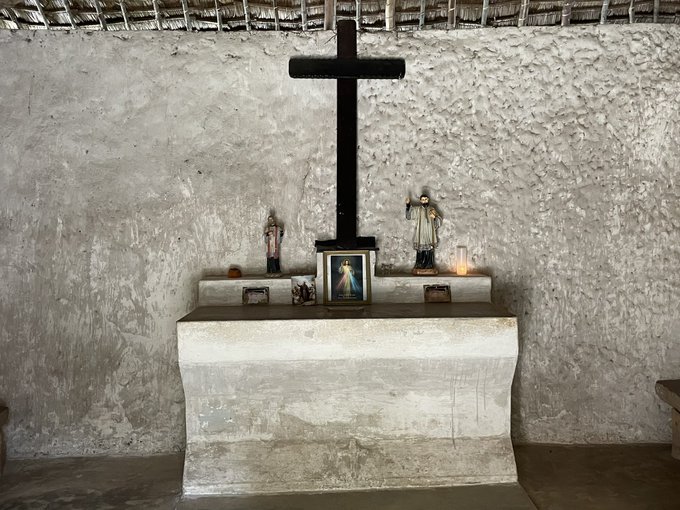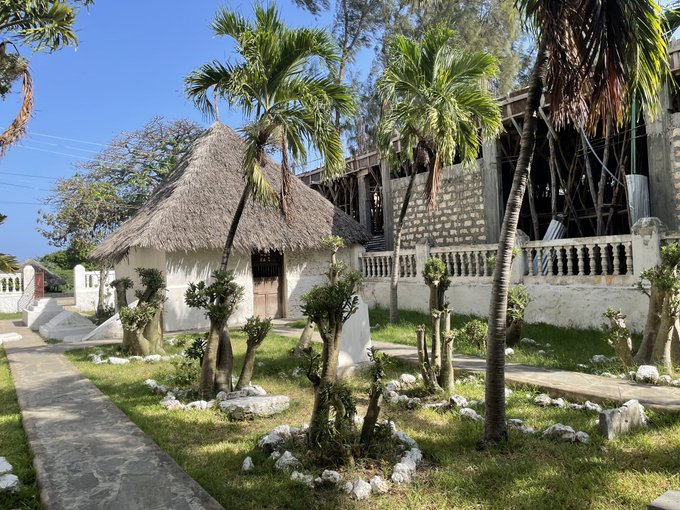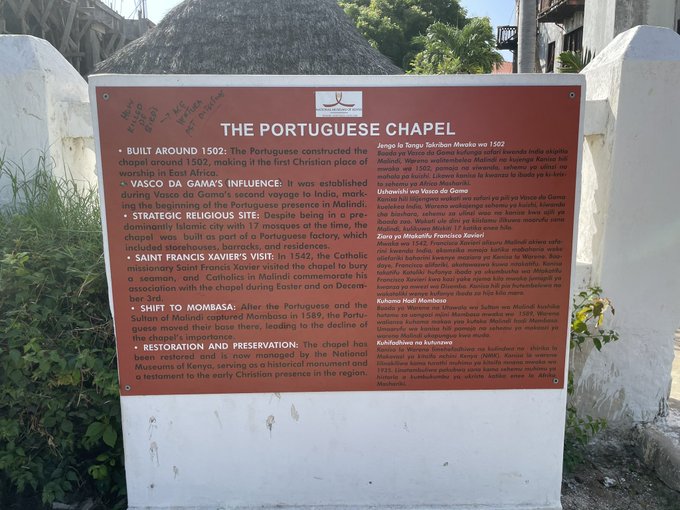KILIFI, Kenya – Cabinet Secretary for Gender, Culture, the Arts, and Heritage Hon. Hannah Cheptumo Wendot has pledged to implement a raft of measures aimed at protecting the historic Portuguese Chapel in Malindi from growing threats of encroachment and unregulated development.
Speaking after a high-level meeting with a delegation from the Embassy of Portugal led by Ambassador Ana Filomena Roche, CS Cheptumo emphasised the government’s commitment to preserving the 16th-century monument.
The historic site is gazetted as a national monument and falls under the stewardship of the National Museums of Kenya (NMK).
“The Portuguese Chapel is not only one of the oldest monuments on the East African coast but also a vital symbol of Kenya and Portugal’s shared history. It is unacceptable that its integrity is being threatened by unchecked development,” she said.
Why the Malindi Portuguese Chapel should be elevated
Among the key promises made by the Cabinet Secretary is the fast-tracking of legal processes to obtain and secure title deeds for the site in the name of the National Museums of Kenya.
This, she noted, is a critical step in safeguarding the chapel’s status and shielding it from further encroachment.
I am delighted to visit the old Portuguese Chapel in Malindi, Kenya, a site tied to the memory of St. Francis Xavier, one of the founders of the Society of Jesus. Built around 1502 by Portuguese settlers during Vasco de Gama’s 2nd voyage to India, this historic chapel witnessed
CS Cheptumo further announced plans to pursue UNESCO World Heritage Site designation for the chapel, a move that could significantly elevate its international profile and unlock global support for its preservation.
“Securing UNESCO status will ensure long-term conservation and sustainable management of this heritage site in line with international standards,” she added.
How Kenya plans to spearhead its cultural heritage
The initiative forms part of a broader national strategy to protect and promote Kenya’s cultural heritage, positioning the country as a leader in heritage conservation across the continent.
According to the CS, safeguarding such sites not only preserves historical and cultural identity but also enhances cultural diplomacy and bilateral relations, in this case, with Portugal.
“This chapel stands as a testament to our interconnected past. We are committed to ensuring that it remains protected for generations to come,” CS Wendot said.
The Portuguese Chapel continues to attract both local and international tourists and is regarded as one of Kenya’s most significant historical landmarks.






